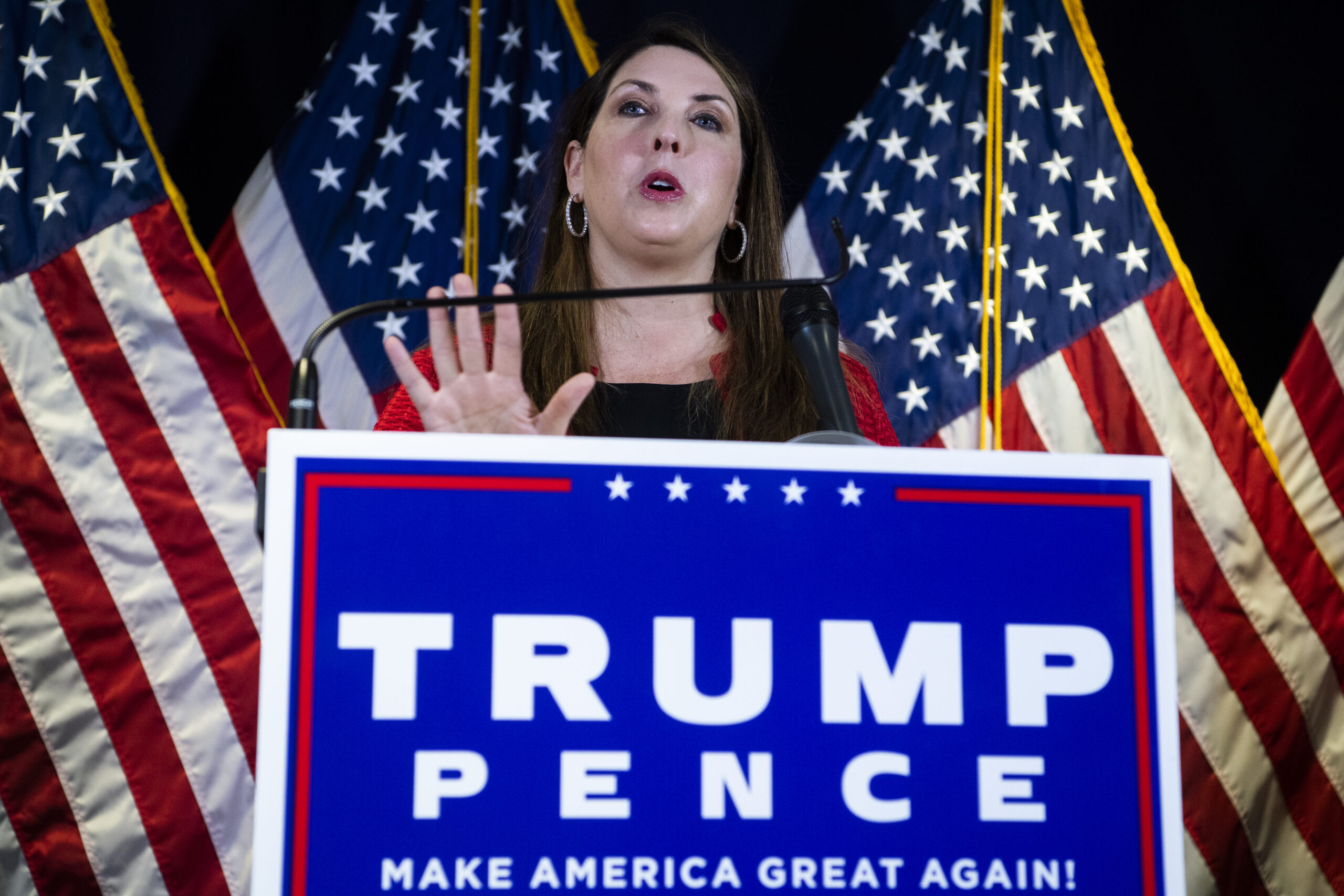
(Photo By Tom Williams/CQ Roll Call via AP Images)
North Dakota Governor Doug Burgum appeared to have little chance of qualifying for the second GOP primary debate on September 27.
The guidelines required candidates to reach 3% in at least one national poll and again in either an additional national poll or two early state surveys. With the forum less than a week away, Burgum had never eclipsed 1% in a national poll and had finished with 0% in more than he had reached even that meager milestone.
But with just a couple days left until the debate, Burgum was saved by a Trafalgar Group poll that found that the requisite 3% of Republican voters were behind his longshot campaign.
History repeated itself on Sunday when Trafalgar once again rescued a no-hope GOP candidate from exclusion.
Former New Jersey Governor Chris Christie had not eclipsed 6% in a national poll since August when Trafalgar released a poll on Sunday showing him reaching that figure: The exact one he needed to in order to qualify for Wednesday night’s debate to supplement his apparently sufficient early-state numbers.
Christie’s appearance on stage will allow him to maintain some sort of pseudo-relevance in the GOP primary. Not as an actual candidate for the nomination, of course, but as a potential spoiler for the two viable challengers to former President Donald Trump.
Indeed, although Christie has cast himself as a crusader against Trump, the dynamics of the race have rendered Christie’s quest quixotic. He will not be able to land a significant — much less killing — blow on Trump, but he could blow up either former Ambassador Nikki Haley or Florida Governor Ron DeSantis’s campaigns in the same way that he did Senator Marco Rubio’s (R-FL) back in 2016.
Alternatively, he might just take up some of the most valuable remaining airtime before the Iowa Caucus or prevent the primary electorate in New Hampshire, the only state where he has any significant base of support, from coalescing around either Haley or DeSantis.
Christie’s last-second qualification for the debate led to some backlash against Trafalgar online from Republicans who want a real choice this cycle, but their anger is misplaced.
Trafalgar’s polls rely on reaching out to deeply engaged GOP voters, which naturally favors candidates lesser-known to the general public. Their methods have led to some prognosticative successes and some failures, but it’s a good thing to have discrete polling firms using different means to account for myriad phenomena.
The deserving object of Republicans’ ire is not Trafalgar, but the Republican National Committee, whose farcical debate requirements are a gift to Donald Trump and signal to the GOP’s rank-and-file that those paid to administrate its primary and win the general election in 2024 are not just unsuited to the task, but uninterested in even making an attempt at accomplishing it.
The RNC would face criticism regardless of the methods it used to qualify candidates for the debate, but the ones it’s chosen are absurd on their face.
It made sense to be inclusive during the first debate and allow even the longshots to introduce themselves to the electorate. Now that we’re hardly a month outside of voters’ first trip to the ballot box, though, it’s time to get serious.
After months of crisscrossing the country, innumerable TV appearances, and 3 debate performances, Christie and Vivek Ramaswamy are pulling down between 2.5% and 5% in the RealClearPolitics national polling average. If they ever had a chance — and it’s hard to argue they did — it has since passed them by.
At this juncture, the RNC has no business wasting party members’ time by treating them as serious candidates at the expense of the real contenders who have piqued the interest of voter.
Moreover, the longshots’ inclusion is in practice a boon to Trump, who benefits mightily from a divided field. And while it is arguable, if uncompelling, that the RNC should remain completely neutral in the primary, it should not reward Trump’s cowardly absence from its forums by diluting their impact.
If the RNC’s real objective matched its stated one of facilitating a fair and instructive primary, it would have raised the bar for Wednesday’s high-stakes debate both numerically and by taking candidates’ average polling performance instead of allowing them to cherry-pick a couple of favorable outliers.
But it’s eschewed its voters interests to curry favor with Trump with an early Christmas gift to his campaign.
This is an opinion piece. The views expressed in this article are those of just the author.






